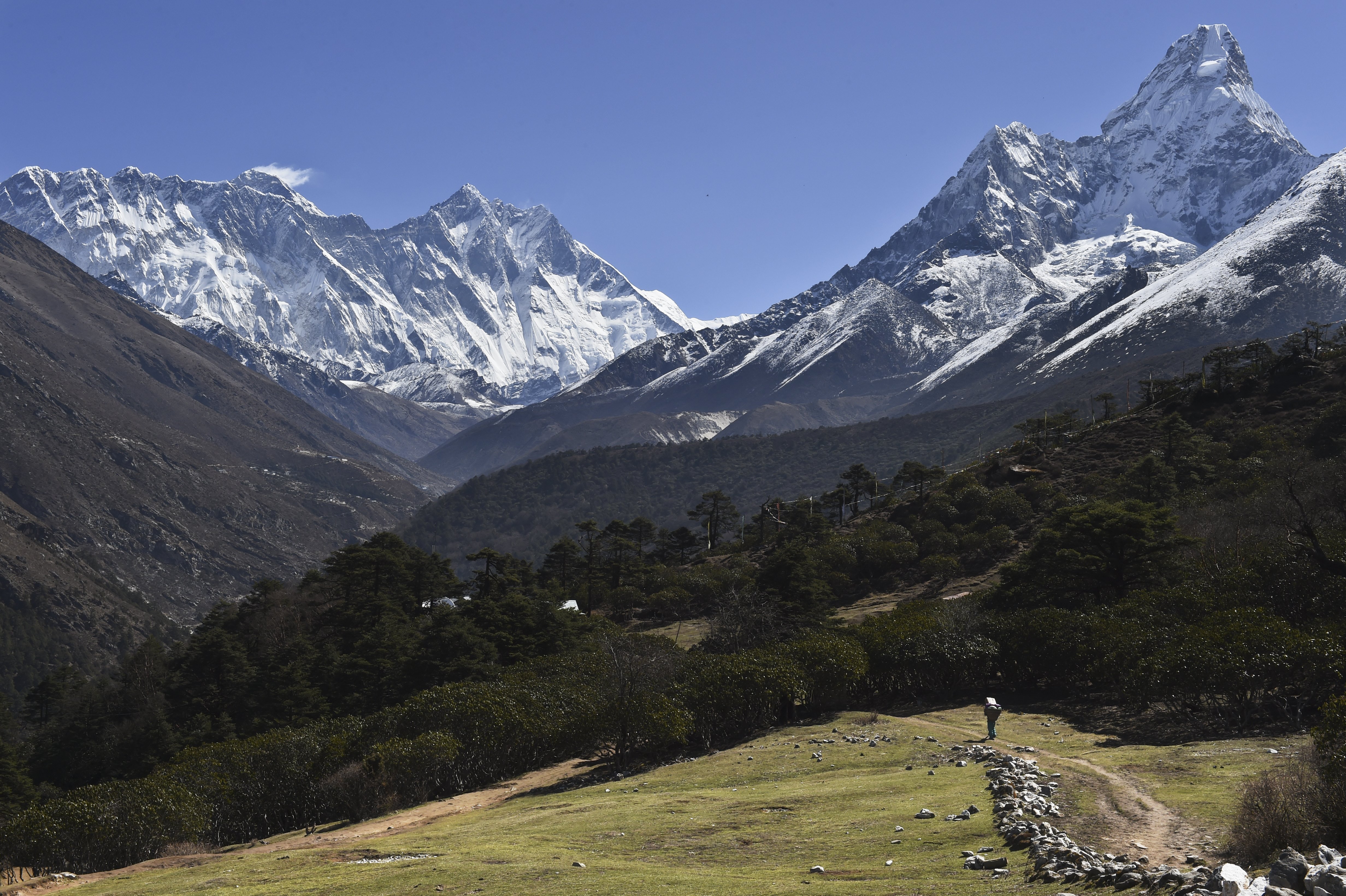Insurers give Nepal ultimatum over chopper scammers
A mass pull-out by the insurers would seriously dent Nepal’s vital tourism industry (ROBERTO SCHMIDT)
Kathmandu (AFP) – Tourists visiting Nepal will not get insurance coverage from next month onward unless Kathmandu cracks down on fraudulent helicopter rescues of trekkers in the Himalayan nation, international firms warned Friday.
A mass pull-out by the insurers would seriously dent Nepal’s vital tourism industry, which just celebrated welcoming over a million tourists for the first time last year.
An AFP investigation last year exposed a racket where dodgy trekking outfits pressure tourists into needless and costly airlifts, or bill multiple times for a single flight.
Nepal’s government launched an enquiry in June after insurers were billed more than $6.5 million on 1,300 helicopter rescues in the first five months of 2018.
The government’s probe identified 15 companies — including helicopter firms, trekking agencies and hospitals — linked to the lucrative racket. But no action has been taken against any of the alleged perpetrators.
In a letter to Nepal’s minister of tourism, Traveller Assist, an Ireland-based company that represents international insurers, warned that unless the government brings charges against these companies by February 15 its clients will cease to issue insurance.
“To be clear, this is an ultimatum!,” Jonathan Bancroft, managing director of Traveller Assist, said in the letter seen by AFP.
“Please don’t be under any illusion that the fraud has stopped. It has not. If our clients stop issuing travel insurance policies in Nepal, it won’t be long until other insurers do the same,” he wrote.
Tourism Minister Rabindra Adhikari said investigations are under way to penalise and charge fraudulent companies.
“We are deeply committed to taking action against them. The government will make no compromises in this regard,” Adhikari told AFP.
The helicopter scam has become such a money-spinner that some budget tour operators are luring customers by selling treks at below cost price — knowing they can make enough profit on kickbacks when the tourists are evacuated.
The trekking operators, lodge owners, helicopter companies, and even hospitals pocket the extra cash.
There are also reports of guides putting baking soda — a laxative — in food to deliberately make trekkers ill and necessitate their rescue by helicopter.
In some cases, trekkers themselves opt for a quick ride home knowing their insurance will pay, while others are being scared into rescues for minor illnesses.
In September, Nepal introduced guidelines to control fake rescues following a warning from insurers but industry insiders say that the scams continue.
Disclaimer: This story is published from a syndicated feed. Siliconeer does not assume any liability for the above story. Validity of the above story is for 7 Days from original date of publishing. Content copyright AFP.


